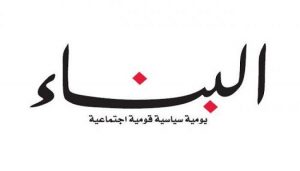
December 10, 2024
Nasser Kandil
• If the Ba’ath regime and President Bashar al-Assad have indeed been sidelined in favor of a new order in Syria, then this “new Syria” is being forged through fire and steel. Hundreds of Israeli airstrikes are systematically targeting the capabilities painstakingly built by Syrians over the past decade, many of which were developed by Syrian expertise and manufactured locally. These include the exceptional missile capabilities that have supplied the resistance forces in Lebanon and Palestine. Research centers, warehouses, factories, airports, aircraft, air defense radars, and warships are being destroyed, all while silence prevails. Media and political discourse focus on the minutiae of individual roles and the balance of power in the emerging regime, with the prison crisis plastered as breaking news in red headlines – merely a distraction until the systematic destruction is complete.
• Concurrently, the Israeli Prime Minister has laid out the occupying entity’s conditions for coexistence with the new Syrian reality. He declared the annexation of the Golan Heights final and irreversible, while the security perimeter for the Israeli army will be defined by its own forces. This is being implemented through incursions into Mount Hermon, the buffer zone, and patrols in the plains of Daraa and villages in southern Syria. However, experts and officials in the occupying entity suggest an even broader agenda: the establishment of a Kurdish entity in the north as a “red line”, reflecting a convergence of American and Israeli interests. With Syria’s shifting dynamics, a U.S. withdrawal seems off the table, and a Russian withdrawal appears more likely. In this scenario, linking the southern security belt created by the occupying entity to a Kurdish state in the north through the Al-Tanf region – where U.S. bases are located – could materialise as the so-called “David’s Corridor”, a concept gaining traction in Israeli discourse.
• In the coming months, Syria will likely witness a new political landscape. Groups taking charge under Islamic banners will face critical questions beyond the euphoria of their perceived victory, which may well be the result of a collapse that handed them power. Chief among these questions will be the fate of the Golan Heights and the unity of Syrian territory. They will also confront ideological dilemmas, particularly regarding their stance on Palestine and the ongoing conflict surrounding it. It is unlikely the new Syrian leadership will defy U.S.-Israeli conditions, which include removing their designation as terrorists and lifting sanctions on Syria. Failure to comply risks a collapse similar to the regime they celebrate overthrowing, while acquiescence would mean surrendering Syria’s sovereignty and territorial integrity.
• Israel’s expansionist ambitions via the Syrian gateway requires bridges toward Iran and Turkey to consolidate it as the master of the middle east. The Kurdish bridge fulfills this role, which is why it remains non-negotiable. This project will inevitably challenge Turkey, Iraq, and eventually Iran, by fostering a Kurdish state that threatens the unity of all three nations. Similarly, Israel seeks a bridge into Lebanon’s social fabric to encircle the resistance and instigate division and conflict. This effort includes reviving the Druze statelet project, although the contrast between the Kurdish and Druze cases is stark. The Druze majority remains committed to Syria’s unity, while the Kurdish majority aspires to establish a separatist state.
• The upheaval in the Middle East has handed Israeli Prime Minister Benjamin Netanyahu an unexpected lifeline. His newfound confidence has likely surprised both the presumed victors and losers within Syria and beyond. Netanyahu has thus spoken with ease about a potential agreement in Gaza and appeared unfazed by the legal challenges he faces. He now perceives his leadership as essential to overcoming Israel’s existential crisis triggered by the wars in Gaza and Lebanon. As he proclaims, “Israel” will remain forever.



